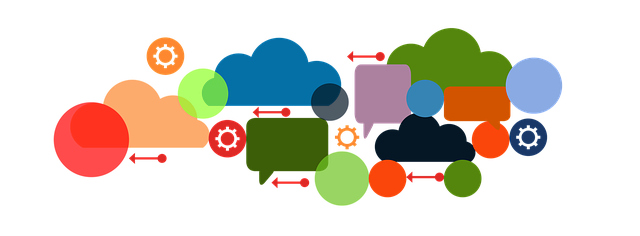AI food allergy risk mitigation tools are transforming dietary solutions by analyzing eating habits, mood data, and user preferences to predict and prevent emotional eating triggers. These tools offer personalized meal plans, stress management strategies, and timely interventions for potential allergies, enhancing users' health and relationship with food. Leveraging machine learning algorithms, these apps adapt to individual consumption patterns, providing safer and healthier experiences.
Emotional eating, driven by stress, boredom, or mood swings, can lead to unhealthy dietary choices and impact overall health. This article explores how adaptive apps leverage artificial intelligence (AI) to combat emotional eating. We delve into the development of personalized nutrition solutions, focusing on AI’s role in understanding emotional eating patterns and mitigating allergy risks through innovative tools. By integrating these technologies, adaptive apps offer a promising approach to promoting healthier food choices and managing allergies effectively.
- Understanding Emotional Eating Patterns and Their Impact on Health
- The Role of AI in Developing Adaptive Food App Solutions
- Mitigating Allergy Risks: Integrating AI Tools for Personalized Nutrition
Understanding Emotional Eating Patterns and Their Impact on Health

Emotional eating, a complex behavior often driven by stress, anxiety, or mood changes, can significantly impact an individual’s health and well-being. Recognizing and understanding these patterns is crucial for effective AI food allergy risk mitigation tools to be implemented. When individuals turn to food as a coping mechanism, it can lead to unhealthy dietary choices and contribute to various health issues, including obesity, heart disease, and diabetes.
AI algorithms designed for nutrition and wellness can play a pivotal role in identifying emotional eating triggers by analyzing eating habits and correlating them with mood data. These tools can educate users about their emotional eating patterns, suggesting healthier alternatives and strategies to manage stress and emotions without relying on food. By understanding the underlying causes, individuals can make more informed decisions, fostering a positive relationship with food and improving overall health.
The Role of AI in Developing Adaptive Food App Solutions

Artificial Intelligence (AI) is transforming the way we approach dietary solutions, especially in addressing emotional eating and related health concerns. By leveraging machine learning algorithms, AI food app developers can create adaptive and personalized experiences tailored to individual users. These apps have the potential to revolutionize diet management by offering real-time feedback and adjustments based on users’ emotions, behaviors, and even physiological signals.
AI food allergy risk mitigation tools are a significant aspect of this development. These tools can analyze vast amounts of data to predict and prevent adverse reactions, ensuring a safer and healthier user experience. Through natural language processing, AI can interpret user inputs, such as food preferences, dietary restrictions, and emotional triggers, to suggest personalized meal plans and provide timely interventions for potential allergy-related issues. This innovative approach combines technology with nutritional science, paving the way for more effective and accessible solutions in the field of health and wellness.
Mitigating Allergy Risks: Integrating AI Tools for Personalized Nutrition

Emotional eating, often triggered by stress, anxiety, or boredom, can pose significant health risks, especially for individuals with food allergies. Adaptive apps are leveraging AI to address this growing concern by integrating personalized nutrition plans and AI food allergy risk mitigation tools. These intelligent applications analyze user behavior, emotional state, and dietary preferences to offer tailored meal suggestions, ensuring that users avoid potential allergens while satisfying their cravings.
AI-driven algorithms can learn from individual consumption patterns and historical data, predicting allergy triggers and suggesting alternative foods. By providing personalized recommendations, these apps empower users to make informed choices, reducing the likelihood of accidental exposure to allergens. This proactive approach not only mitigates health risks but also fosters a healthier relationship with food, highlighting the potential of technology in enhancing well-being.
Emotional eating is a complex issue that significantly impacts overall health, but adaptive apps powered by AI offer a promising solution. By understanding emotional eating patterns and integrating AI tools for personalized nutrition, these applications can help users make informed dietary choices while mitigating potential allergy risks. AI food allergy risk mitigation tools play a crucial role in developing effective, tailored solutions, ensuring individuals receive the support they need to maintain a healthy relationship with food.
